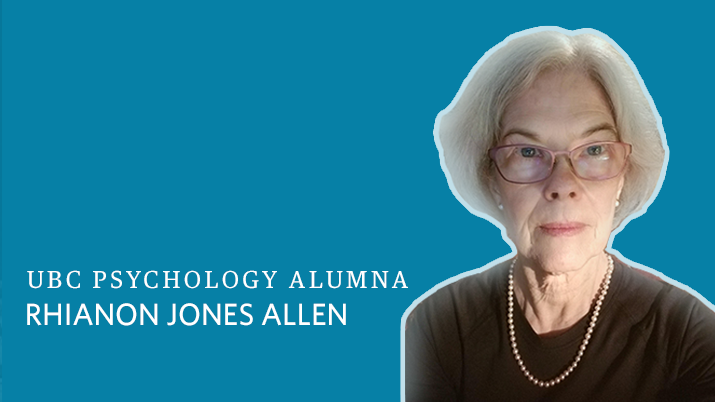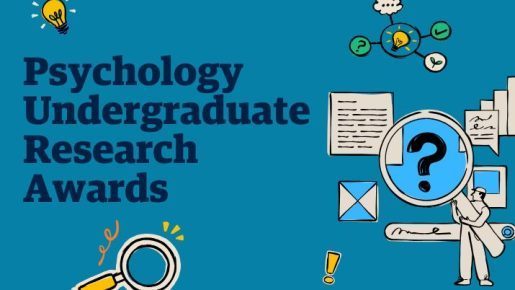

Meet Dr. Rhianon Jones Allen, psychology alumna (BA Hons, ‘74) and emeritus professor at Long Island University. She recounts her research journey and how UBC Psychology has helped her along the way.
Dr. Allen joined UBC’s faculty of arts for an interview, which is published below.
Why did you choose your program at UBC and what did you enjoy most about it?
I chose Psychology because I was interested in studying language learning. The program enabled me to work with professors and other students conducting research that eventually led to my academic career.
What were some of your most meaningful experiences at UBC?
Hands-on involvement in psychological research and the various experiences in the Psychology Club.
What choices did you make at UBC that contributed to your career success / journey?
Getting personally involved in active research was key to developing a professional field.
What was your first job after graduation and what other jobs did you have before your current position?
After graduation, I worked as a research associate at Boundary Mental Health Unit in Surrey (now closed), and then as a research assistant for a few psychology professors. Later, towards the end of my doctoral studies, I took a position as a research scientist at New York State Psychiatric Institute, and also taught as an adjunct lecturer. After I earned my PhD, I took a faculty position at Long Island University in Brooklyn, NY.
“The greatest challenge I met early in my career is having to conduct research that agencies wanted to fund, rather than research that interested me personally. However, that did contribute to broadening my interests, so it was a good, healthy challenge.”
Is your current career path as you originally intended? What challenges did you face in launching your career?
My research interests expanded as my career progressed. Although two of my most read and cited scientific papers are indeed related to language learning, a third most read paper is actually on paranormal beliefs in adults! The greatest challenge I met early in my career is having to conduct research that agencies wanted to fund, rather than research that interested me personally. However, that did contribute to broadening my interests, so it was a good, healthy challenge.
What do you like about your current job and what do you find challenging? How does it relate to your degree?
I have retired now so that I could move back to the Vancouver area. I still publish occasionally, but it is more difficult without graduate students working with me.
From your experience, what has been the value of having an Arts degree?
In addition to the courses I took as a psychology undergraduate, I value the courses I took in Philosophy, Sociology, English Literature, Religion, and Asian Studies. Not only did these courses enrich my personal development, they also helped give me a background for my later research in cultural psychology.
Are there any other achievements or activities you would like to highlight?
Although I still remain active in psychology, I devote a great deal of time to promoting environmental sustainability through volunteer work in Point Roberts, WA, and Tsawwassen, BC.
What advice would you give to students and alumni interested in breaking into your industry?
Form a personal relationship with a professor and, if you are interested in a research career or graduate studies, get involved in research.
What advice would you give your graduating self?
Actually, I think that things worked out very well, and can’t think of any advice I would pass on. It’s possible that if I had committed to the honour program I would have had gotten into my first choice PhD program, but I wanted greater freedom in my choice of courses. In the end, I’m glad that I explored courses in other departments.
This article is republished from The Faculty of Arts. Read the original article here.


